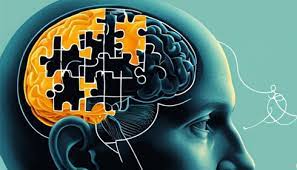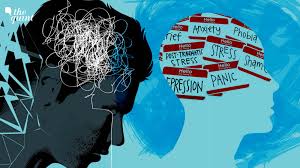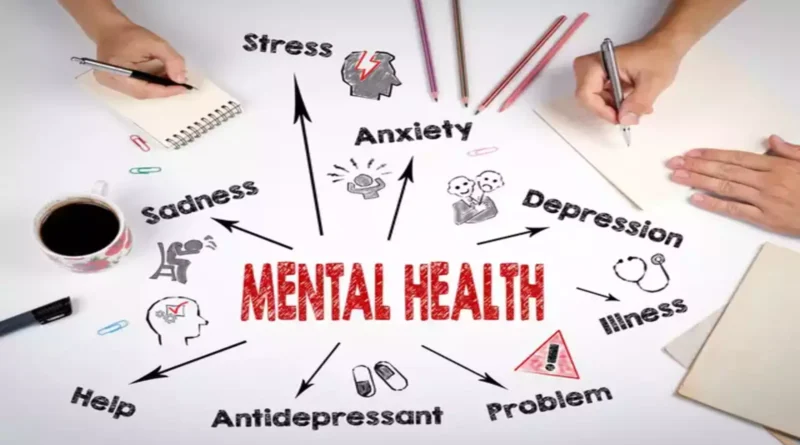Mental Health Cases: Understanding the Growing Crisis and Its Implications
Contents
- 0.1 Understanding Mental Health Cases and Their Impact
- 0.2 Factors Contributing to the Rise of Mental Health Cases
- 0.3 The Role of Technology in Mental Health
- 0.4 Addressing the Mental Health Crisis
- 0.5 The Role of Education and Awareness
- 0.6 The Need for Supportive Communities
- 0.7 The Importance of Early Intervention
- 0.8 A Call to Action
- 1 Author
Mental health has emerged as one of the most critical global issues in recent years. The rising number of individuals experiencing mental health challenges has drawn significant attention from both medical professionals and policymakers. With the increasing prevalence of conditions such as anxiety, depression, and more severe disorders like schizophrenia, it is essential to recognize the urgency of addressing mental health issues. This article explores the scope of mental health cases, the factors contributing to their rise, the implications for individuals and society, and the need for more effective interventions.
Understanding Mental Health Cases and Their Impact
Mental health encompasses emotional, psychological, and social well-being, influencing how individuals think, feel, and act. Mental health conditions range from common disorders such as depression and anxiety to more severe conditions like bipolar disorder or schizophrenia. The World Health Organization (WHO) estimates that approximately one in four people will be affected by a mental health condition at some point in their lives. As more people are diagnosed with mental health disorders, society must shift its perception and approach to these conditions.
The impact of mental health cases is far-reaching. It affects not only the individuals living with these conditions but also their families, friends, and communities. For example, depression, one of the most prevalent mental health disorders, can lead to feelings of hopelessness, difficulty in maintaining relationships, and an overall decline in the quality of life. These effects ripple through families, impacting their dynamics and well-being. In the workplace, untreated mental health conditions can lead to absenteeism, reduced productivity, and an overall decrease in workplace morale.
Factors Contributing to the Rise of Mental Health Cases
Several factors have contributed to the growing number of mental health cases globally. One of the most significant factors is the increasing prevalence of stress. In today’s fast-paced world, people face pressures related to work, relationships, finances, and other aspects of life. The constant bombardment of negative news, economic instability, and global crises such as the COVID-19 pandemic has exacerbated stress levels, triggering or worsening mental health conditions in many individuals.

Another key factor is the stigma that continues to surround mental health. Although attitudes toward mental health have improved in recent years, many individuals still hesitate to seek help due to fear of judgment or discrimination. This stigma leads to a delay in treatment, which often results in the worsening of conditions. Moreover, access to mental health services remains a significant barrier. In many regions, there are insufficient mental health professionals, and those available are often overwhelmed by the demand for services. Financial constraints can also prevent individuals from seeking treatment, leading to untreated or poorly managed conditions.
The Role of Technology in Mental Health
The role of technology in mental health has become increasingly important. While the rise of social media and digital connectivity can contribute to mental health problems, technology also provides numerous opportunities for improving mental health care. Telemedicine, for example, has become a valuable tool, allowing individuals in remote areas or those with mobility challenges to access therapy and counseling. Furthermore, digital platforms can provide educational resources, online support groups, and mental health apps that help individuals manage their conditions.
However, there are also concerns about the negative impact of technology on mental health. The constant exposure to social media platforms can lead to feelings of inadequacy, anxiety, and depression. Many individuals compare their lives to the curated images they see online, leading to a distorted sense of reality. Additionally, excessive screen time, especially before bed, can disrupt sleep patterns, which in turn can exacerbate mental health conditions. While technology can be a powerful tool for addressing mental health, its role must be carefully managed to prevent further harm.
Addressing the Mental Health Crisis
Addressing the mental health crisis requires a multifaceted approach that includes improving awareness, increasing access to care, and providing support systems for individuals and communities. One of the first steps in addressing mental health is reducing the stigma associated with mental health conditions. By encouraging open discussions and normalizing conversations about mental health, society can create a more supportive environment for individuals to seek help without fear of judgment.
Improving access to mental health care is another critical component of the solution. Governments and organizations must invest in mental health services, ensuring that individuals have access to affordable and effective care. This includes training more mental health professionals, especially in underserved regions, and offering mental health services in schools, workplaces, and other community settings.
Additionally, it is important to integrate mental health care into general healthcare systems. Mental health is often treated as a separate entity from physical health, but both are interconnected. A holistic approach to health care that considers both physical and mental well-being is essential for the overall well-being of individuals.
The Role of Education and Awareness
Education plays a vital role in preventing and addressing mental health conditions. By incorporating mental health education into school curriculums, children and young adults can learn about the importance of mental well-being from an early age. This education can help reduce the stigma surrounding mental health and encourage early intervention if problems arise.

Public awareness campaigns are also essential in educating society about mental health. These campaigns can provide information about the signs and symptoms of mental health disorders, promote available resources, and encourage individuals to seek help when needed. In many cases, early intervention can prevent mental health conditions from escalating and leading to long-term consequences.
The Need for Supportive Communities
Beyond professional treatment, supportive communities are crucial for individuals living with mental health conditions. Strong social support networks, including family, friends, and peers, can significantly improve mental health outcomes. Communities that foster empathy, understanding, and acceptance create environments where individuals feel safe to express their struggles without fear of rejection.
Supportive workplaces, schools, and community organizations can provide spaces where individuals feel understood and encouraged to take care of their mental health. Peer support groups, for example, allow individuals to share their experiences with others who understand their challenges. These connections can offer valuable emotional support, reduce isolation, and provide a sense of belonging.
The Importance of Early Intervention
Early intervention is one of the most effective ways to address mental health conditions. Recognizing the signs and symptoms of mental health issues early on can lead to timely treatment, which can significantly improve the prognosis for individuals. Schools, workplaces, and healthcare providers should be proactive in screening for mental health issues and offering resources for those in need.

Incorporating mental health assessments into routine medical check-ups and creating safe spaces for individuals to discuss WDBOS their mental well-being are important steps toward early detection and intervention. By identifying mental health concerns early, individuals can access treatment before their conditions worsen, ultimately leading to better long-term outcomes.
A Call to Action
The growing prevalence of mental health cases demands urgent attention and action. Mental health is a crucial component of overall well-being, and society must work collectively to address the rising crisis. By reducing stigma, increasing access to care, integrating mental health into general healthcare, and providing supportive communities, we can create a more inclusive and understanding society. Early intervention, education, and awareness are key to improving mental health outcomes and ensuring that individuals living with mental health conditions receive the care and support they need. The time for action is now, and it is essential that everyone plays a part in fostering a healthier, more compassionate world.
Also read this article: Lasagna: Hidangan Lezat yang Menggugah Selera

